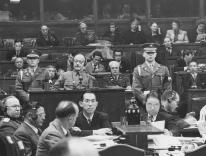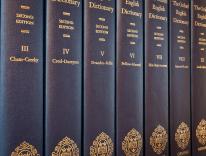You’re likely to think of irony as a literary conceit, and perhaps also as a pathological trait of hyper-intellectual elites. If you take A Case for Irony seriously and read it carefully, there’s a good chance it will overturn such views by convincing you that irony is an essential constituent of a life well lived.
A Case for Irony contains Jonathan Lear’s two Tanner Lectures in Human Values, given at Harvard University in 2009, along with comments on those lectures by Cora Diamond, Christine M. Korsgaard, Richard Moran, and Robert A. Paul, as well as Lear’s responses to those comments. Reading the lectures together with the back-and-forth responses provides a window into the way philosophical thought proceeds: challenge, response, request for clarification, suggestion of new distinctions, and so on. The Tanner Lecture series was established in the late 1970s to “advance and reflect upon…scholarly and scientific learning relating to human values.” It has been given by some of the most prominent humanists of the past three decades. Lear certainly belongs in their company: he teaches at the University of Chicago, and has written a great deal on broadly ethical topics in philosophy and on the theory and practice of psychoanalysis.
What unifies Lear’s work over the past twenty years is a concern with what we are and how we can learn to flourish. He thinks, following Kierke-gaard, that becoming human is a difficult skill and that each of us needs a good deal of help in learning it. Catholics should agree, and even though Lear is no Christian (he emphasizes that fact in this book), he has a deep understanding of the grammar of Christian thought, and deploys it to good effect.
Lear’s argument is that cultivating a capacity for irony is essential to human flourishing. We are creatures aimed at irony, he believes, and if we fail to move toward it we lose an excellence appropriate to us. Of course, everything depends here on how irony is understood, and about this there is a special difficulty for Catholics aware of the history of Christian thought, because it is normal for us to classify irony (or, anyway, ironia) as a vice. Thomas Aquinas, for instance, understood it as one of the vices opposed to truth, and categorized it with such things as lying, pretense, hypocrisy, and boasting. He defined the vicious kind of ironia as a belittling of oneself in a way opposed to truth—as, for example, if I were to write that I find it difficult to utter a lucid sentence in English. (Boasting is the opposite of irony in this sense—as, for example, if I were to write that lucid sentences in English are always effortless for me.)
This is not what Lear has in mind. Neither is the ordinary dictionary definition of irony—the figure of speech in which the meaning expressed contradicts, or stands in some other kind of tension with, the meaning intended. Rather, “irony” is for Lear a term of art, and the most important elements in the picture he paints of its meaning are a certain construal of Socrates as ironist, and a consideration of Kierkegaard’s work on irony. Ironic experience, for Lear, is indexed to our practical identities—our sense of ourselves as being such that we can put ourselves forward in this or that role—as a teacher, say, or a Christian or an American or a parent. Those practical identities are largely constituted by a sense that one knows how to go on with one’s role—knows the next steps in being such and such. I teach a class, and have some sense that I know how to; I instruct or cuddle or chastise my child with the same sense; I perform political speech as an American, similarly.
But these practical identities are not only a matter of know-how; they are also aspirational. They carry with them a sense that we have as yet more to learn about how to perform them. I am not the perfect parent or the perfect teacher, and my knowledge of how to go on as either carries with it an aspiration to improve. And not only that. Many of our practical identities contain moments of self-reflection: part (though a relatively small part) of what it is to be an American or a Christian is reflection on those identities, reflection that often includes puzzlement about what comes next.
All that, for Lear, belongs to the sphere of practical identity and the habitation of various available social roles. It is good and normal, but not enough for flourishing. Ironic experience, as it relates to any one of our practical identities—or to some range of them at once—is what moves these identities toward what they should be. It does so by radically disrupting practical knowledge: when it occurs, it has the form, “I now find myself utterly committed to going on with something that I have no idea whatever how to go on with.” Or, to put the same matter a little differently, the ironized practical identity is confronted by the unrealizability of its own aspiration, and so “in the ironic moment, I am called to a halt.” I don’t know how to go on; what to do next escapes me utterly.
Irony as Lear understands it is uncanny (we don’t know what to make of it); it is erotic (it calls us, with longing, to something whose shape we cannot see); and it breaks apart whichever practical identity it pertains to, showing the repertoire of that identity to be essentially inadequate to its own aspirations. Lear values ironic experience because it is a form of truthfulness and thus a form of self-knowledge. It shows us the incompleteness of our practical identities without providing a solution. It shows us something with which we must live, something that binds the fabric of our existence. Augustine knew this: mihi magna quaestio factus sum (“I am become a great question to myself”).
Lear thinks that ironic experience can be cultivated and integrated into a life. It need not bring us to a halt for good. He takes the example of Alcibiades’s Socrates, puzzle-struck for a whole night on the eve of battle, a man who, halted by ironic experience, does not know how to go on. But the same Socrates fights the next day, with bravery and dispatch. And Lear offers the following elegant formulation: “The practical knowledge that is human excellence contains a moment of ignorance internal to it.” Note the word “moment”: irony doesn’t have to paralyze us forever—we can go on—but those who live with irony now know their goings-on to be inadequate and opaque to their own purposes and aspirations.
Lear is interested in the psychoanalytic applications of this understanding of ironic experience. Those are what his second lecture is about (I’ve been writing here mostly about the first). I’m not the least interested in the psychoanalytic mode of thinking and practice. But I am interested in the uses of Lear’s analysis for Catholic theology, and these, I think, are real and important. Lear sees some of them himself, because of the place that Kierkegaard has as his interlocutor. It seems to me that the liturgy, especially the liturgy of the Mass, already represents an ironic understanding of what it performs—and that such an understanding is essential to the Christian life considered more broadly.
Consider, to take just one example, the non sum dignus said after the consecration. This is a deeply ironic moment. Something of great importance has just happened, and I, as a participant, am now about to be incorporated into it. But I am incapable of deploying concepts adequate to what has just happened; and, still more important, I am incapable of receiving the gift that is being given in the events now underway. That’s just what the non sum dignus means: saying it disrupts the form of activity to which it belongs and leaves me on my knees with no idea how to go on. And this moment is the heart of the Christian life here below: the identification of an aspiration that can neither be adequately understood nor acted upon in such a way as to realize it. This is the liturgical expression of Augustine’s discovery: “I am become a great question to myself.”
That, at least, is the grammar of the practical identity called being a Christian, and of its principal activity, which is worship. One can live that life and perform that activity non-ironically, but not without some loss.
Lear’s book provides intellectual pleasure of a very high order: its distinctions are careful, its prose lucid and elegant, and its examples suggestive and well chosen. It’s too bad he hasn’t thought more than he seems to have done about the extent to which a life ordered by the liturgy is and must be an ironic one, or about the place that irony ought have in the Christian life. But that is no reason to hesitate: you should read this book.
Please email comments to [email protected] and join the conversation on our Facebook page.
Share
Previous Story
Fighting over the Scraps
Next Story
Shaken

